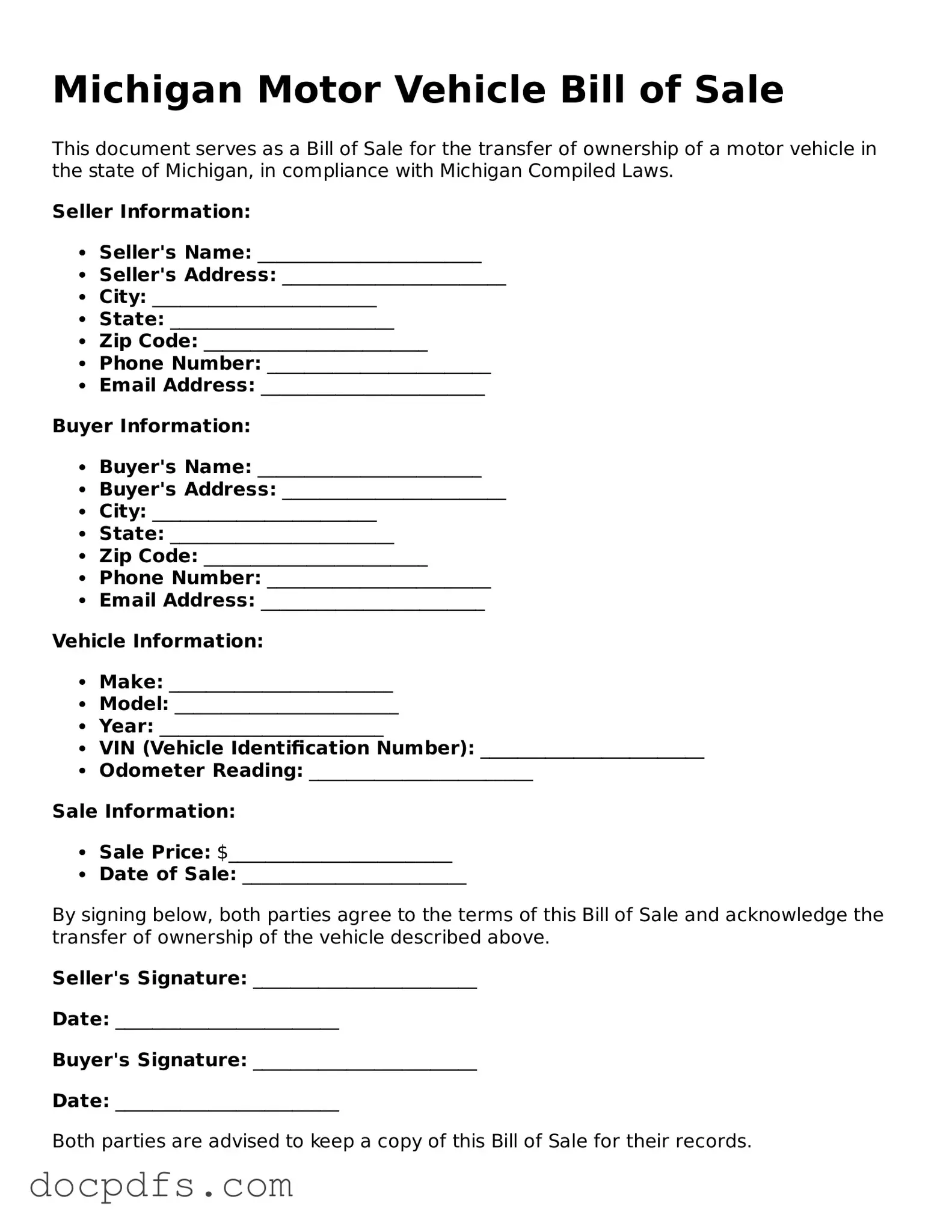What is a Michigan Motor Vehicle Bill of Sale?
A Michigan Motor Vehicle Bill of Sale is a legal document that serves as proof of the sale and transfer of ownership of a motor vehicle. It includes essential details about the vehicle, such as its make, model, year, and Vehicle Identification Number (VIN), as well as information about the buyer and seller. This document is crucial for both parties to establish a clear record of the transaction.
Why is a Bill of Sale necessary in Michigan?
The Bill of Sale is important for several reasons. First, it provides legal proof that the buyer has purchased the vehicle, which can help avoid disputes in the future. Second, it is often required when registering the vehicle with the Michigan Secretary of State. Lastly, having a Bill of Sale can protect the seller from any future liability related to the vehicle after the sale has been completed.
A standard Michigan Motor Vehicle Bill of Sale includes the following information:
-
The full names and addresses of both the buyer and seller.
-
The date of the sale.
-
The vehicle's make, model, year, and VIN.
-
The sale price of the vehicle.
-
Any disclosures regarding the vehicle's condition or history.
Including accurate and complete information helps ensure that the document serves its purpose effectively.
Do I need to have the Bill of Sale notarized?
In Michigan, notarization of the Bill of Sale is not a legal requirement. However, having it notarized can add an extra layer of authenticity and can be beneficial if any disputes arise later. It may also help in certain situations, such as when the buyer needs to register the vehicle in another state.
You can create your own Bill of Sale as long as it contains all the necessary information required by Michigan law. There are also templates available online that you can use to ensure you include everything needed. Just be sure that whatever format you choose meets the requirements for the transaction.
What should I do after completing the Bill of Sale?
Once the Bill of Sale is completed and signed by both parties, the seller should provide a copy to the buyer. The buyer will need this document when registering the vehicle with the Michigan Secretary of State. Additionally, the seller should keep a copy for their records, as it serves as proof of the sale.
What if the vehicle has a lien on it?
If the vehicle has a lien, it is essential to address this before completing the sale. The seller should contact the lienholder to find out the payoff amount and the process for releasing the lien. The Bill of Sale should indicate that the vehicle is being sold free of any liens or, if applicable, detail the lien situation. This transparency helps protect both the buyer and seller during the transaction.

